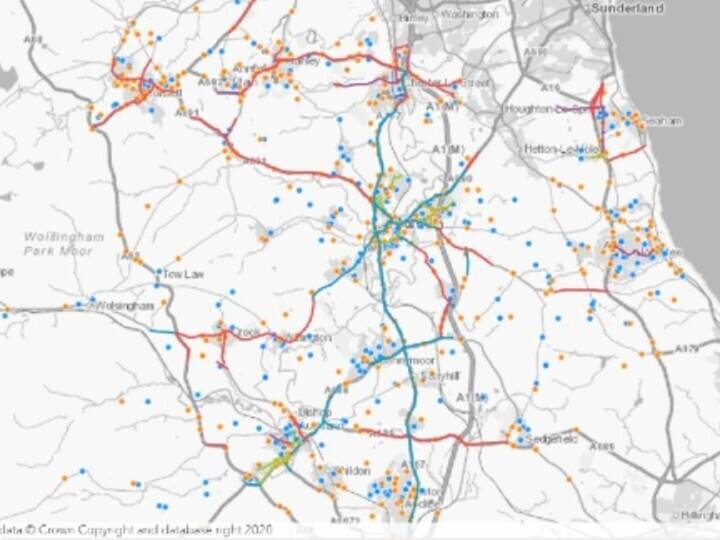West Yorkshire councils collaboration with the emergency services is leading to better quality location data
By Gayle Gander, Head of Marketing at GeoPlace with Rachel Antcliffe, Principal LLPG Officer at Leeds City Council
Accurate data is imperative for protecting the vulnerable and despatching resources to the right location in an emergency situation. In the simplest terms, poor quality and inconsistent location data can lead to doubt and delay when responding to a call and cost lives.
Accurate information at a granular level – for example household and street locations– is also vital for conducting analysis and undertaking research that can help to reduce risk and to protect citizens from harm. West Yorkshire councils work closely with the emergency services’ in their area to gather those essential insights and further improve the data submitted to GeoPlace for inclusion in Ordnance Survey’s AddressBase for reuse across the public sector and beyond.
Coming together
The West Yorkshire group serves communities in a wide area covering Leeds, Wakefield, Bradford, Calderdale, and Kirklees. The collaboration began in the early to mid-2000s when the councils came together with the aim of sharing knowledge, experiences, solutions, and methods of working with the British Standard for compiling address and street information, known as BS7666.
The emergency services – seeing the value of this work – joined the collaboration shortly afterwards, with the Data and GIS Teams at City of Bradford Metropolitan District Council taking the lead. The introduction of OS AddressBase was a real driver for collaboration; for the first time, the councils and the emergency services all used the same address data. The councils worked to help the emergency services understand the data better and all parties benefited from access to the same, consistent data.
The collaboration has highlighted practical use cases for location data out in the field. It has also enabled the stakeholders to better define their requirements for a property dataset. By sharing best practice and common scenarios, West Yorkshire councils and their working partners have been able to overcome many practical issues and define a uniform approach to maintaining and sharing data.
“Accurate data is a necessity to protect the vulnerable. We need to dispatch the resources to the right location; poor location data could cost lives”.
Ben O’Hara from, West Yorkshire Police
Many local authorities have a fixed protocol for this way of working – regular meetings that take place against a formal agenda. But the partnership in West Yorkshire is seeing the benefit of informality, and opportunities to build more insightful relationships from a less structured approach. Beat officers, for example, out and about on the streets every day, are passing intelligence on shop names changing or residential properties being split into flats – some of which might not be captured in traditional data-gathering.
The collaboration takes place electronically and face to face. Originally, the group met twice a year, but now the meetings take place as needs arise. The partners take turns to host meetings finishing with a lunch which enables people to get to know each other better, building up a level of trust which means that many queries can be simply resolved by an email or phone call. This mutual enthusiasm for better quality data is giving the emergency services a faster, more personal response than a formal process. It also lets personnel ask questions or request more information to ensure the data is being captured correctly.
If there is an address query, the emergency services know that it is in their interest to liaise with the local authority who is the ultimate authority for address data. It’s down to the emergency service to provide enough evidence to get the Custodian to act on this latest intelligence, for example from conversations with the business/alarms company speaking to the officer on the ground.
This way of working is supported by council directors as well as the practitioners who understand the value of sharing data and are willing to provide the time for the relationships to be developed and queries to be responded to.
The results
The overall approach has delivered a more uniform way of creating and maintaining addressing information, and increased the efficiency of everyone’s operations: sometimes the easiest way to make progress is very simply to get all the authorities in a room, to explain a challenge, and agree on a satisfactory approach.
It has also resulted in better quality data. Feedback from the emergency services on individual addresses has enabled the councils to improve the quality of the data and take a holistic approach to problem solving. As Ben O’Hara from, West Yorkshire Police said, “Accurate data is a necessity to protect the vulnerable. We need to dispatch the resources to the right location; poor location data could cost lives”.



